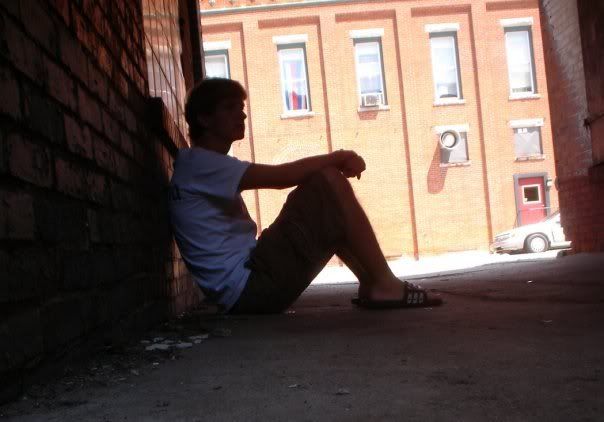 Lives are spent writing; whether the writing is for a book, publication, or notes for remembering certain events, writing is an essential practice of everyday lives. To some, writing comes naturally, but to others writing is compared to the fears of confronting a bear—scared of how to approach it and how to interpret mismatched thoughts into sentences that develop and flow. I realized that “confronting the bear” not only meant writing, but took a lot of work getting used to and improving.
Lives are spent writing; whether the writing is for a book, publication, or notes for remembering certain events, writing is an essential practice of everyday lives. To some, writing comes naturally, but to others writing is compared to the fears of confronting a bear—scared of how to approach it and how to interpret mismatched thoughts into sentences that develop and flow. I realized that “confronting the bear” not only meant writing, but took a lot of work getting used to and improving.Preschool classes were spent writing names on large pieces of paper and decorating them with crayons and finally, in kindergarten, learning to spell the simplest words such as “cat” and “dog.” Writing as a young child was probably one of the biggest achievements, when guessing was always right and handwriting was new. These were the earliest memories I had as a child, when I used to write my name in half lowercase letters and half in uppercase letters. Early years in education were filled with wide ruled paper where letters were formed and words were spelled and where writers first learned taking a pencil to paper.
Elementary teachers always ask the bold question, “Write something about yourself if you live to be one hundred years old.” Writing is not just the forming of words into sentences. Writing is personality. What forms the sentences are vivid imagination, personality, and perspective. “When I’m one hundred years old I’m not going to have any teeth,” was my response as a first grade student, with a badly drawn image of myself in an orange jumpsuit and lopsided head.
I did not even remotely start liking to write until high school. I had a high school teacher that really changed writing and the experience; he looked like Ben Folds and was dorky and had the same sense of humor as him, too. Instead of a piano, he rocked a pen and journal and was slightly less famous as a musician. He made writing fun by assigning papers but granting the freedom of writing anything we wanted within certain guidelines. “Classifications of Co-workers,” “The Best Gig Ever,” and “Having Fun At Work” were just a few titles of articles where I was given the chance to turn a requirement into an essay full of excitement, as well as writing music, movie, and short video clip reviews in class.
Throughout my middle and high school career I put out nothing but half-assed papers with little to no thought, hoping to “just get by” until I finally opened my eyes to realize that if effort and personality are put into a paper it will turn into something a world better than a piece written to get through a class. Have fun with the assignment. Sometimes all it takes to get motivation spewing is a deep voiced, Ben Folds-like, former attorney turned teacher to change the way writing is perceived and how it affects anyone as a person.
Sophomore year I decided to take a journalism class, which if I completed two semesters would get me into a publications program. I went through the two semesters of classes and joined our school’s student magazine and I wrote on the staff for two years, which gave me the ability to put my creative thinking into public view. Not only is it hard to get a high school student to pick up a magazine, but what was even harder was getting the student interested and not losing his or her attention.
Features stories were mostly my niche within the publication, where I wrote music or restaurant reviews or even defined the word “music” and what it meant to others—which was answered differently every time. Not only is writing something for others to read and enjoy rewarding, but being able to see my words in a publication is one of the best feelings to experience.
Writing can be used to put a point across, to relieve stress, or just to write a grocery list for the following day. Writing is used almost every day and is almost crucial for every job. Throughout my high school career, I found that the only bad writing is no writing. Sure, a paper with no effort may turn out a decent grade, but there is no doubt that the paper could have been better if more thought and personality was put forth. I realized that “confronting the bear” not only meant writing, but writing with confidence, effort, and personality; a lot of improvement and hard work makes for great literature.

1 comment:
I completely agree with you. Mr. Hill-e-o changed my outlook on writing and helped me develop my skills much more than any teacher.
Post a Comment